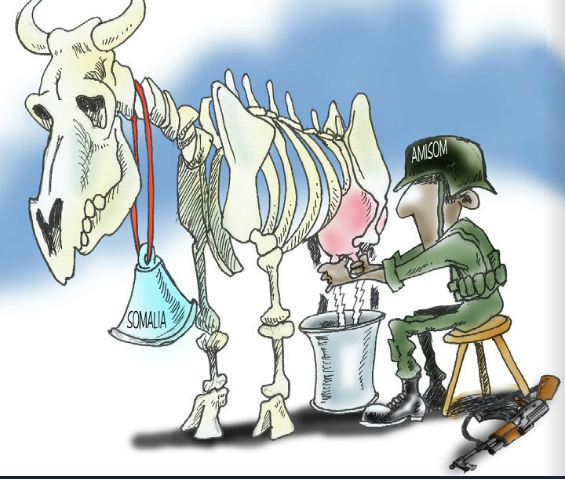The African Union Peacekeeping force in Somalia has been in the country for 10 years. The planned withdrawal has been pushed forward, amid concerns that the country still doesn’t have the capacity to maintain security without foreign help.
Obviously, the African Union Mission in Somalia (Amisom) was not going to stay in the country forever, given the funding burden and the many situations across the continent and the world demanding the continental body’s attention.
Amisom went into Somalia to eradicate the Al Shabaab, install a government chosen by the people of Somalia, pacify the country and build the capacity of domestic security agencies to stop Somalia from being a threat to its neighbours. But Somalia remains fragile, despite success in driving Al-Shabaab out of most major towns. Al-Shabaab also remains a lethal force with the war being waged through improvised explosive devices and suicide bombings.
Just as the world was beginning to believe that Al-Shabaab is finally on its knees, last year the militants detonated a truck bomb in Mogadishu that killed more than 300 people and injuring scores of others.
The difficulty of eradicating the militia is that it has moved from a standing army into an ideology that influences the vulnerable unemployed and illiterate youth. President Mohamed Abdullahi Mohamed “Farmajo,” has so far received more support than any other president since 1991 and the inter- national community has poured in pledges to his “security architecture,” which was launched at the Somalia International Conference in London in May, last year.
The pact — which involves co-operation with the five regional governments — proposes an 18,000-strong Somali National Army (SNA) excluding the Special Forces, and Somali police, who together number 32,000. Amisom, with the support of the UN and other donors like the US and the European Union, were supposed to train and equip at least 30,000 Somali troops to take over when it left. This initiative fronted by the African Union and sponsored by the United Nations has made some headway, but more needs to be done.
Mogadishu, which has not known peace for several decades, other towns and even the rural areas, live under the perpetual terror threat from Al-Shabaab. Despite the noble objectives, individual soldiers and rogue government officials have taken advantage of the crisis in Somalia to profiteer from illicit trade. Kenyan soldiers have in the past been figured for illicit trade in Sugar and charcoal while Ugandan soldiers were once arrested siphoning fuel and selling to groups related to the terror group.
There have also been instances of civilian casualties being caught on the line of fire. The national governments of Uganda and Burundi have also been accused of accused of over reliance on the allowances from the peace keeping mission, raising concerns as to whether they are motivated to end the crisis, which they have turned in to a cash cow. Moving forward, troop discipline and commitment by the countries contributing troops to have a peaceful and a better Somalia should be the priority. This edition looks the good, the bad and the ugly of Amisom Forces , a decade on.






























